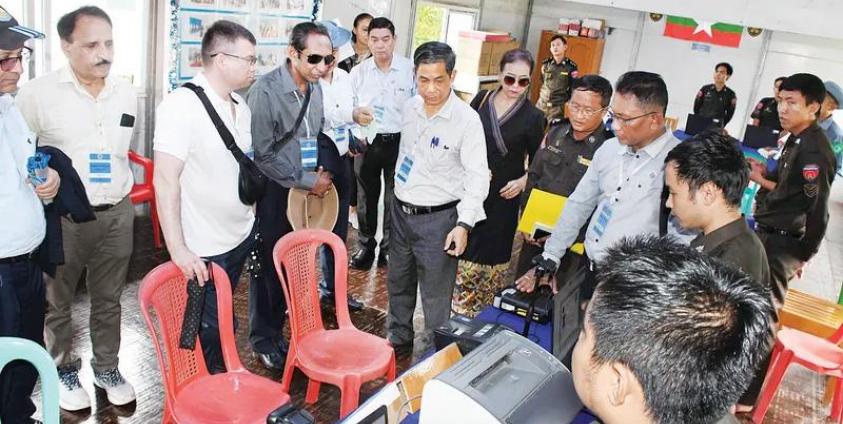Analysts suggest that the Military Council's efforts to repatriate refugees from Bangladesh to Myanmar are unlikely to succeed if they do not engage in discussions with the United League of Arakan (ULA).
U Aung Thaung Shwe, a former representative of Pyithu Hluttaw from Buthidaung township, stated that for the successful implementation of this issue, the Military Council must engage in discussions with the ULA government, which already holds the majority of the territory in Rakhine, otherwise there is no feasible way to achieve success in this matter.
"When the ULA/AA has significant control over territory, I don't believe the refugee readmission issue will succeed if the military council acts unilaterally without engaging in discussions with the ULA government," he remarked.
In response to international pressure, the military council is working towards the repatriation of refugees who had fled to Bangladesh.
On September 2, a delegation led by Union Minister U Ko Ko Hlaing of the Military Council showcased the preparations made by the Military Council in the Maungdaw region for the returning refugees to the heads of 16 embassies and diplomats stationed in Myanmar.
The delegation flew into Sittwe Township on September 1, and the following day, they traveled to Maungdaw Township using military helicopters via Sittwe.
Throughout their trip, they visited the Taung Pyo Let Wae reception center, Kyein Chaung (South) village designated for refugee resettlement, and the Hla Phoe Khaung transit camp.
The delegation comprises U Ko Ko Hlaing, Deputy Chairman of the Rakhine State Stability and Development Coordination Committee 1 and Union Minister of the Ministry of International Cooperation, Dr. Yin Yin Nwe, Advisor to the Chairman of the Military Council, General Khun Thant Zaw Htoo, Deputy Minister of Border Affairs, as well as heads of 16 embassies and diplomats.
The Military Council has not provided information about the specific countries represented by the 16 embassies.
U Aung Shwe Thaung, a former representative of Pyithu Hluttaw from Buthidaung township, noted that previous efforts to facilitate the return of refugees during the National League for Democracy (NLD) era were unsuccessful. Currently, the Military Council is in the preliminary stages of engaging with the international community regarding the refugee acceptance plan, and achieving success is proving to be a significant challenge.
He continued to express doubts about the Military Council's ability to achieve success in the refugee repatriation process, especially considering the current infiltration of Rakhine State by the ARSA group and the growing public concern.
"In the current scenario, there have been reported incidents of ARSA-related killings in Bangladesh, and there are concerns about their presence and activities in Rakhine state. Given these circumstances, how realistic is the prospect of implementing the refugee readmission plan?" U Aung Shwe Thaung further questioned.
On March 8, the heads of embassies from ASEAN countries and neighboring nations, accompanied by a team led by the Military Council, visited the Maungdaw region to observe the Military Council's efforts related to refugee reception.
United League of Arakan/Arakan Army (ULA/AA) spokesperson U Khaing Thukha also criticized the Military Council's actions as a mere show to enhance their international image.
U Khaing Thukha made the above remarks during the seventh press conference of ULA/AA, which was held on February 27 at 10:00 am.
"The idea of readmitting Muslims appears to be largely a facade. This is because, except for Rakhine State and some areas within FPNCC-controlled regions, national stability remains elusive, and security remains uncertain. We believe that the Military Council may have various political considerations underlying this matter," he commented.
The Muslim refugees in Bangladesh are requesting the Myanmar Military Council to fulfill three key points upon their return to Myanmar, which include the ability to return to their homes with dignity, resettlement in their original homes, the granting of citizenship rights, and the assurance of security guarantees.
"The refugees are willing to return if the Military Council grants the three requested points. However, since the Military Council has not met the refugees' demands, there is a delay," said a Muslim close to the refugees.
According to the United Nations, approximately 700,000 Muslims sought refuge in Bangladesh as a result of the Myanmar military's clearance operations during the conflict in Maungdaw, Buthidaung, and Rathedaung townships in 2016 and 2017.







